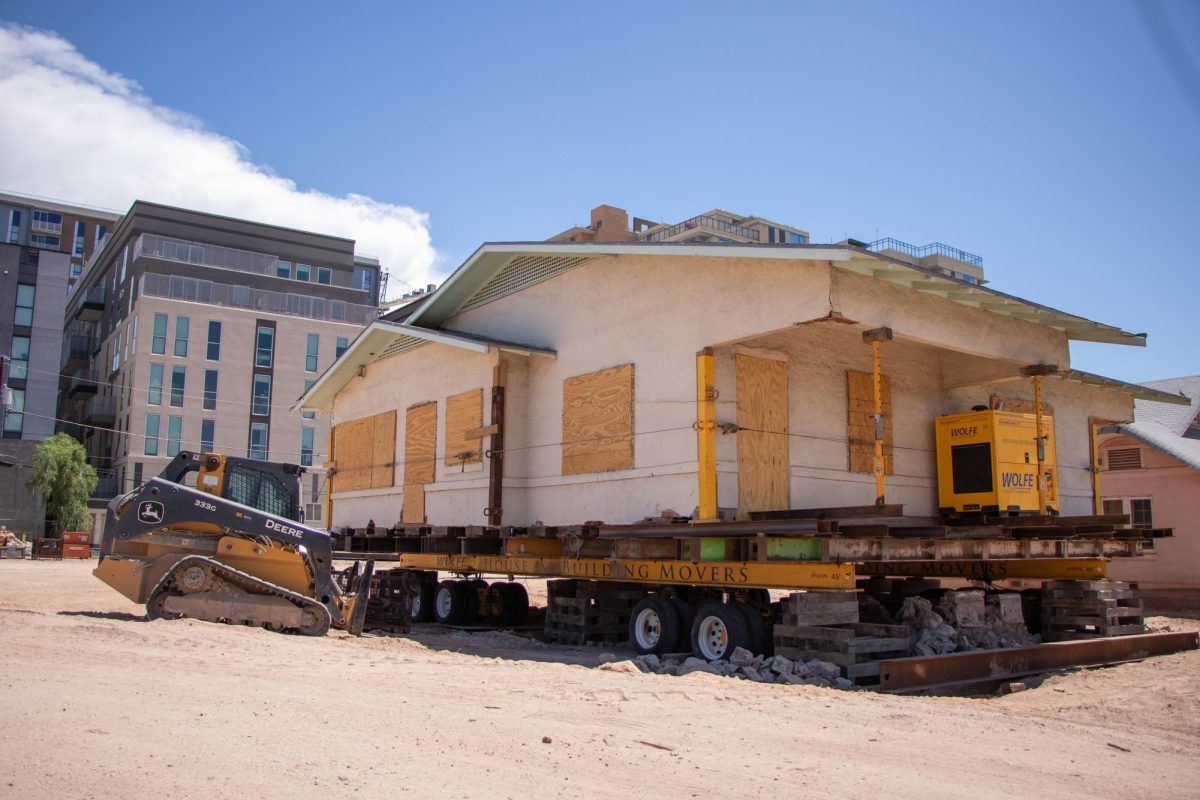Average university tuition in Arizona increased almost 81 percent between the start of the recession in 2008 and 2014, more than in any other state in the nation. That number will go up again if the Arizona Board of Regents accepts the budgets presented by the three university presidents on April 20.
Hart’s plan calls for this year’s incoming freshmen to pay $11,403 in tuition each year for the next four years. Students who are already enrolled at the UA and signed up for last year’s optional tuition guarantee program will pay about $10,975. Those who didn’t sign up for the guarantee will pay about $100 less, but their tuition has the potential to increase further next year, and the year after that.
Tuition at the average American four-year public university last year was $9,139, according to the College Board. Under the new proposals, not even Northern Arizona University, traditionally Arizona’s least expensive university, would be that cheap.
Here’s what all of those numbers boil down to: fewer Arizona students who can access higher education. And those who do graduate will have more debt.
According to the U.S. think tank Demos, the average total cost of attending a public university is “more than one third of the median household income in 22 states.” While Arizona families have been asked to sacrifice more and more of their income to fund higher education, the state has shuffled less and less of its own income into universities. While tuition has increased more than 80 percent, state per-pupil spending has gone down by more than 45 percent.
Not to beat a dead horse, but it bears repeating: No other state, at any point in history, has raised tuition as much and as quickly as Arizona has over the past seven years. Where Arizona raised tuition 81 percent, most states increased only 28 percent. Where the board of regents asked students to chip in almost $4,500 more, the average state asked for only another $1,936. And now they want to ask for more.
We say no. No more.
We understand that the state has dealt the universities an impossible hand. We understand this budget will be difficult to balance, and that deep cuts have already been made.
But that doesn’t excuse a tuition increase. This dismal and horrifying trend of shifting greater and greater financial burdens to students and their families has to stop eventually, but instead, it looks like it’s becoming a habit. It’s time this state quits its tuition habit cold turkey.
This is the line we are drawing in the sand. No more increases.
Further increasing tuition simply makes no sense. Arizona Gov. Doug Ducey got us into this mess with his awful budget, and rarely do we quote him in a positive light, but his response to the proposed tuition hikes was surprisingly astute: “Making a quality product that fewer can afford does not often make sense.”
What’s the point in preserving academics and university services if students can’t afford to benefit from them?
Even the state’s brightest and most talented students, those who presumably benefit from preventing cuts to our universities’ superior academic environments, could be priced out by the tuition increases.
The only merit scholarship that would cover four years of tuition for instate students at the new prices is the award given to National Merit, National Hispanic and National Achievement Scholars. The maximum level of the Wildcat Excellence Scholarship, given to students with at least a 3.0 GPA and 29 ACT, will pay less than 88 percent of tuition costs.
If even the highest achieving students can’t afford to attend school, what does it matter that the UA was able to avoid cutting this many classes or that research center?
Thankfully, the proposed plan is not a done deal, and the board of regents seems unconvinced of the president’s tuition proposals. When Ducey’s deep higher education cuts were first approved, board of regents Chairman Mark Killian told The Arizona Republic, “I personally am not the least bit interested in raising tuition. I don’t think we can do that.” Last week, Killian still seemed skeptical, telling the Republic, “I was hoping to hold the line and not raise tuition on the in-state people.”
We need to capitalize on the board of regents’ uncertainty and make sure it knows that no matter the severity of the problem, continued tuition increases are not the answer. They’ll only make the situation worse.
The Arizona Board of Regents is accepting comments on the budget proposal until April 30 at 5 p.m. Comments may be sent to tuition@azregents.edu, or they may be mailed to 2020 N. Central Ave., Suite 230, Phoenix, AZ 85004. Students can also comment during an interactive hearing at Gallagher Theatre on April 20 from 5-7 p.m.
—Editorials are determined by the Daily Wildcat Editorial Board and written by its members. They are Nicole Thill and Jacquelyn Oesterblad. Follow them @DailyWildcat








